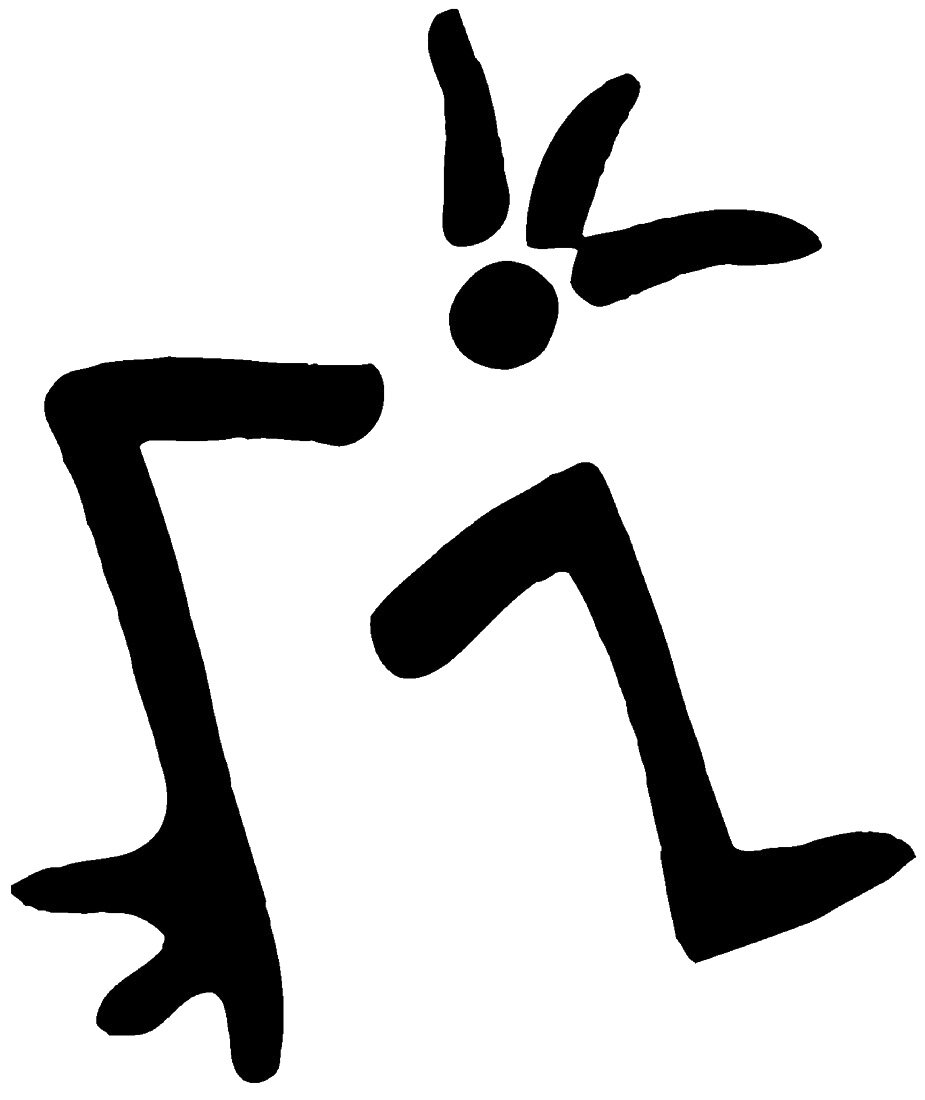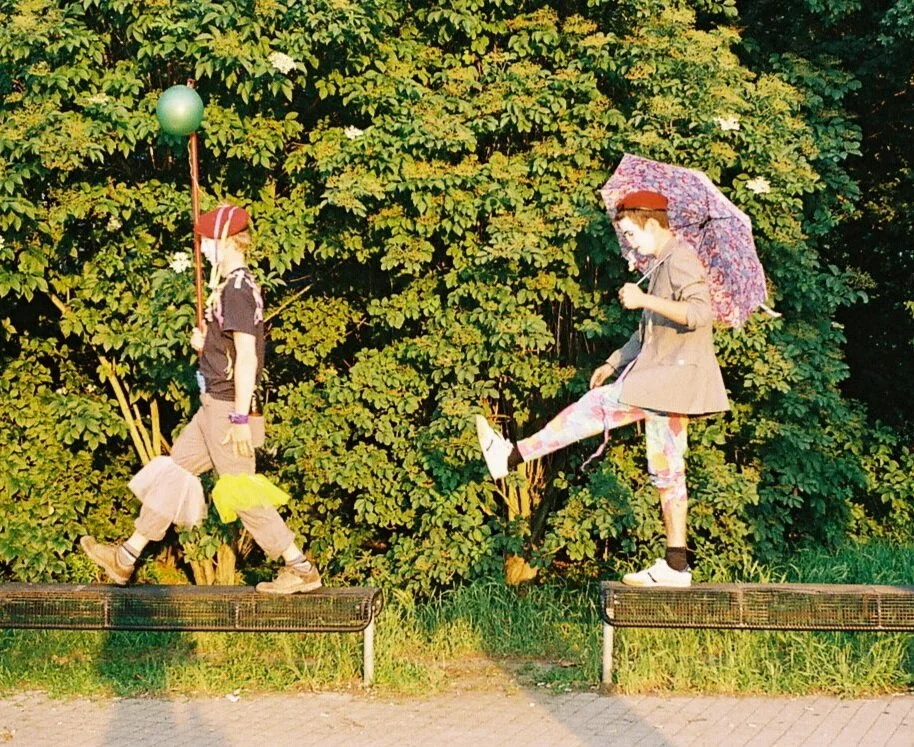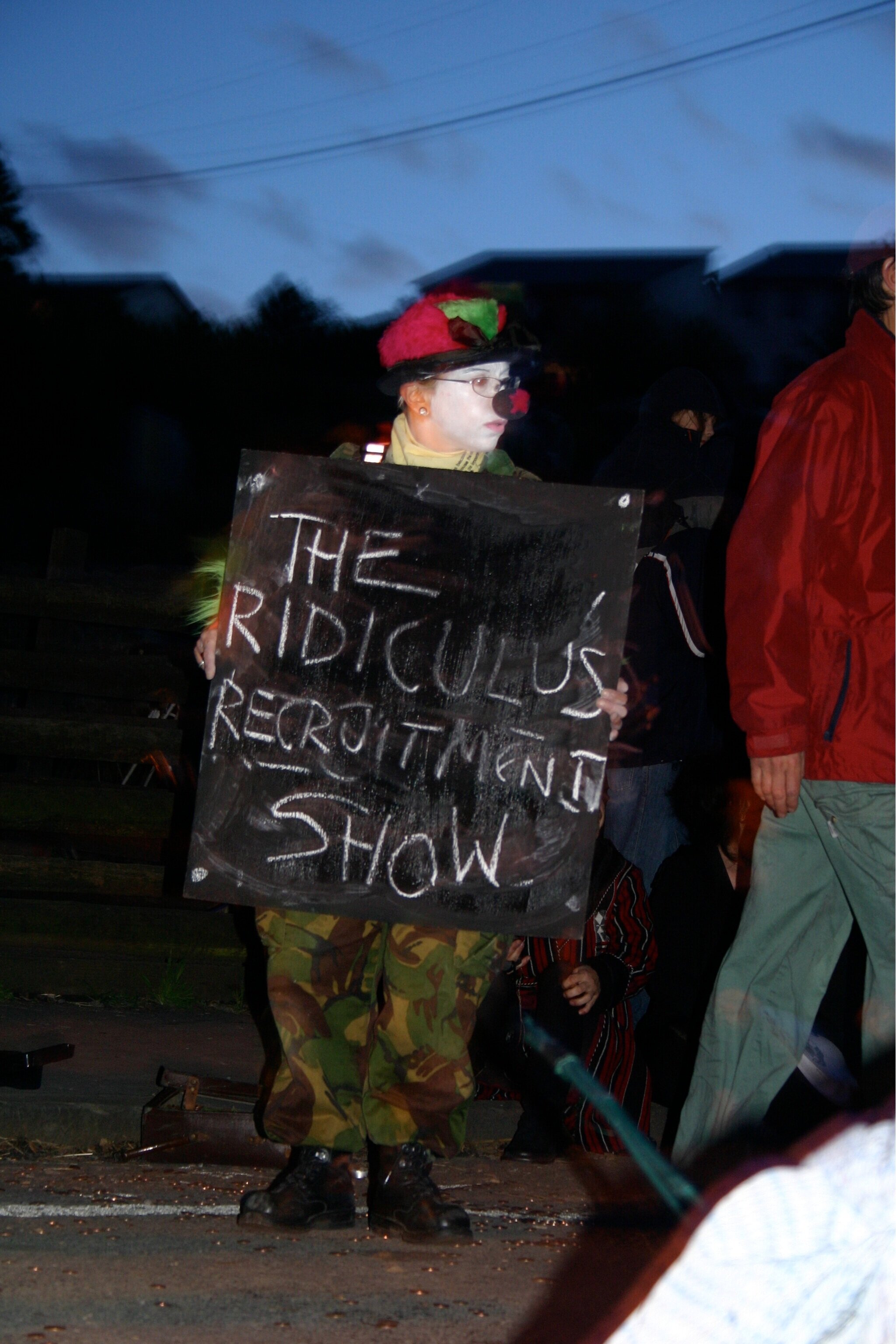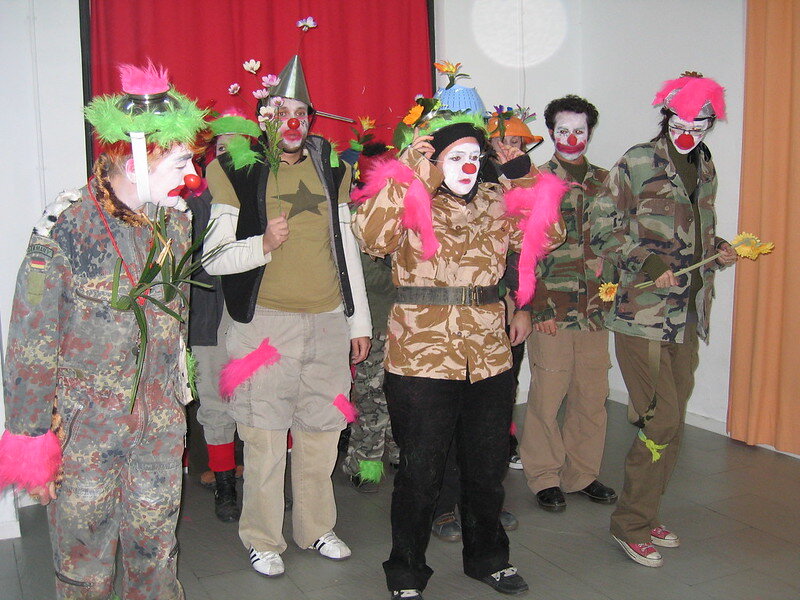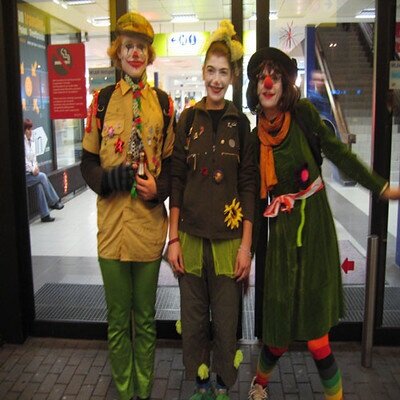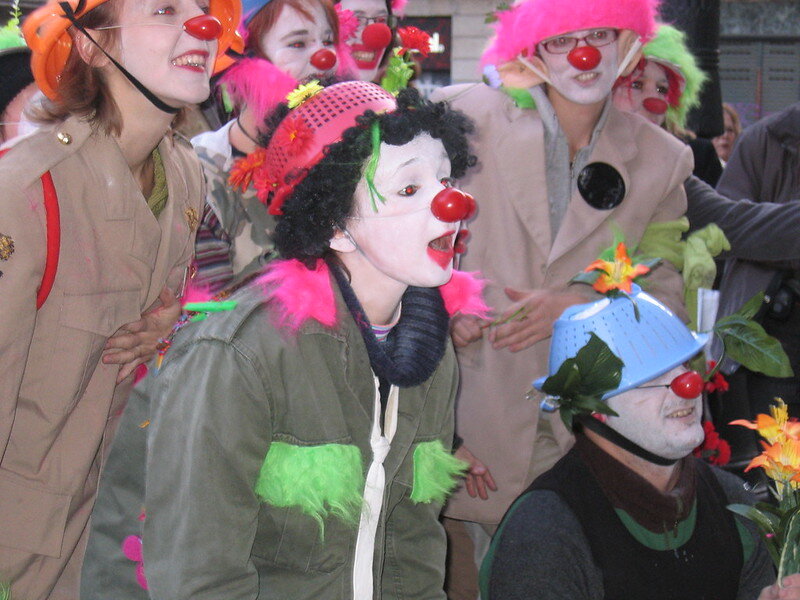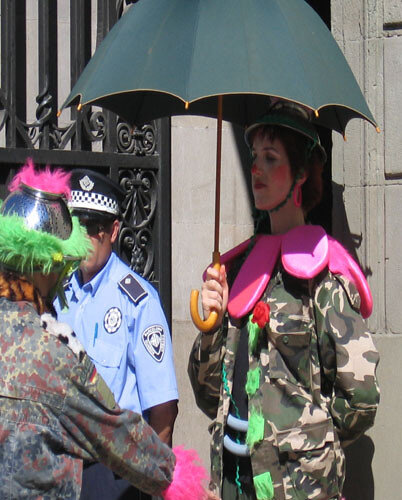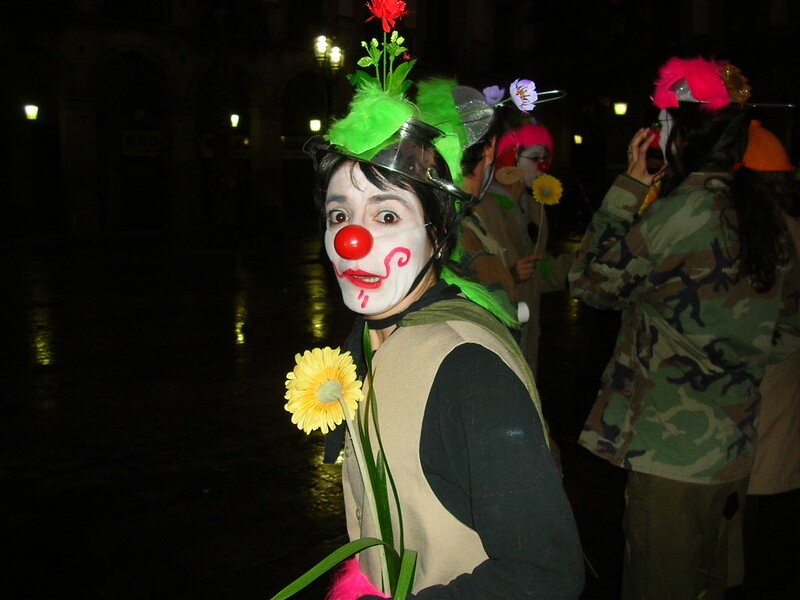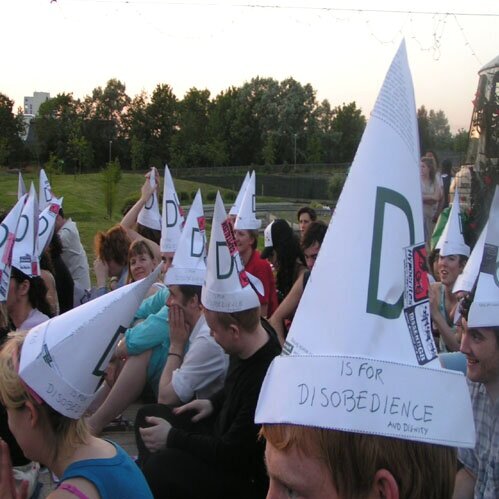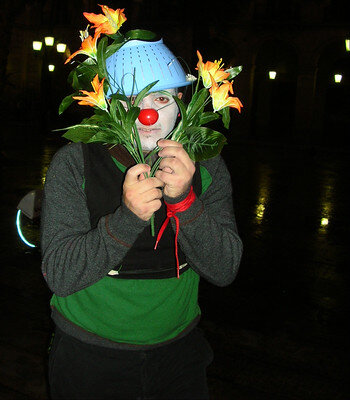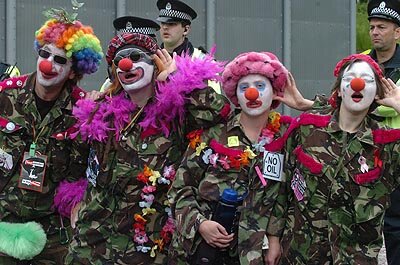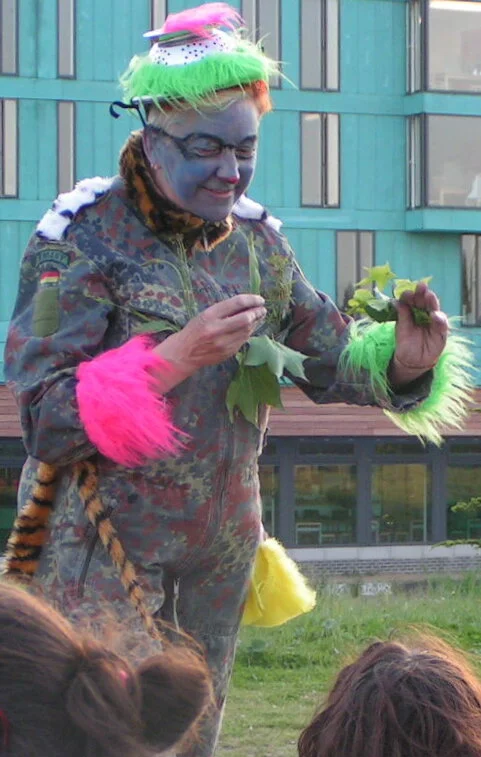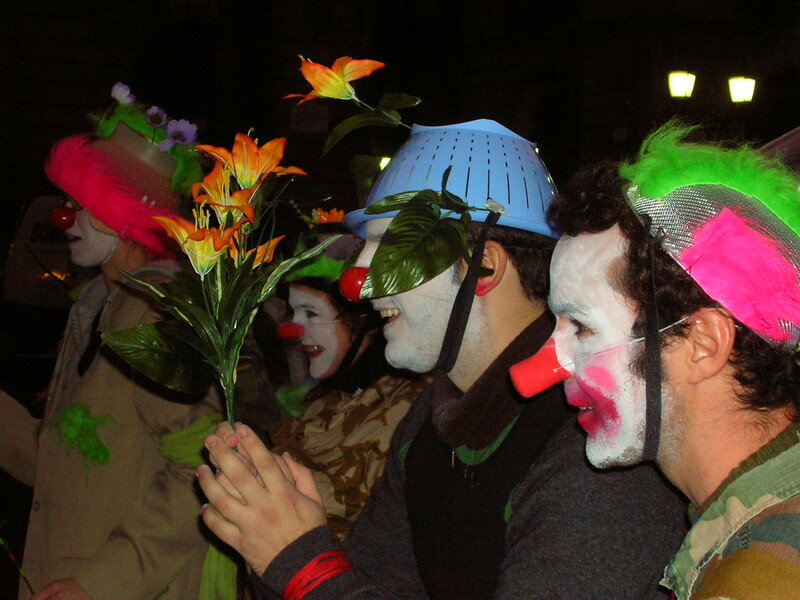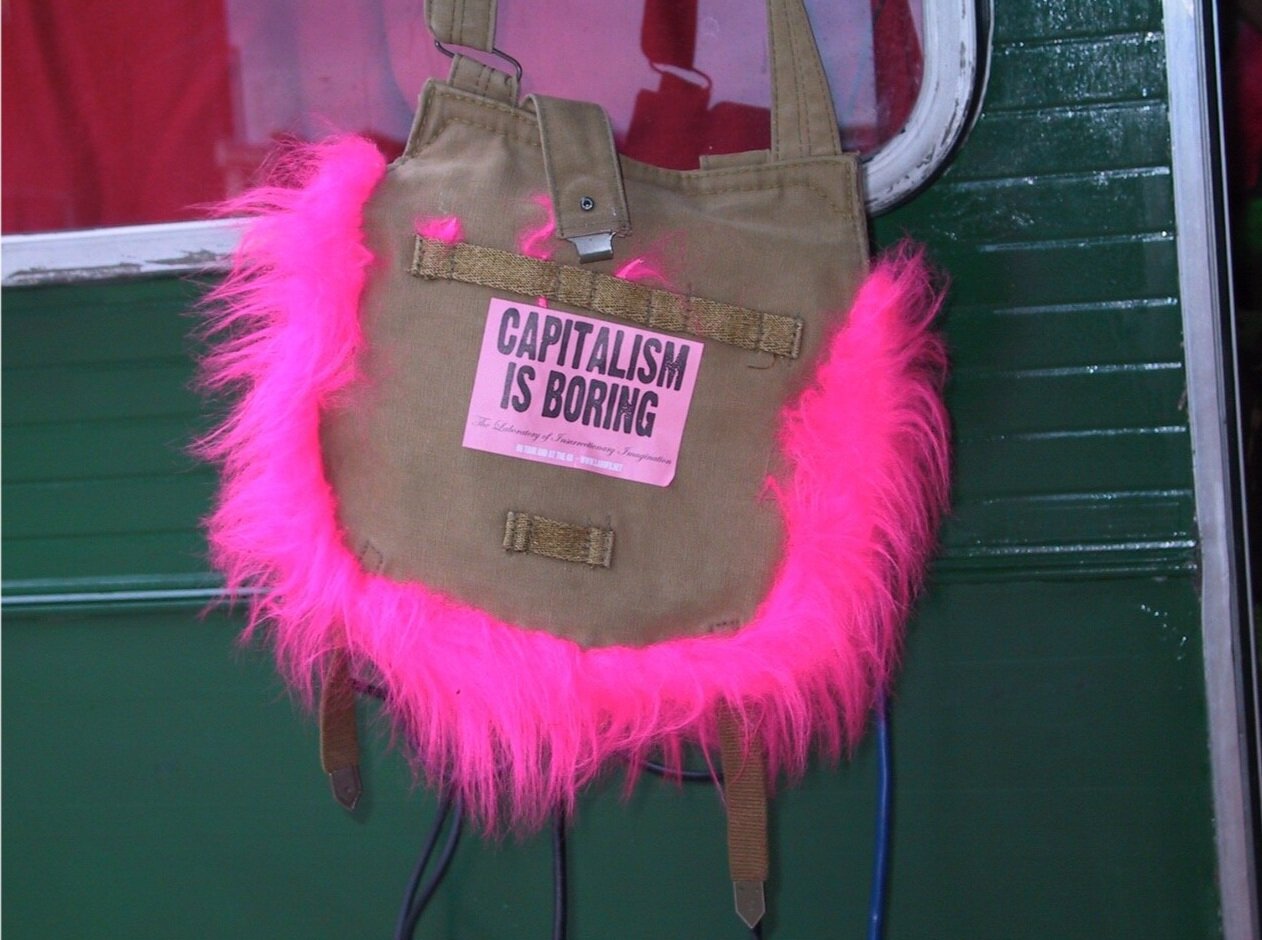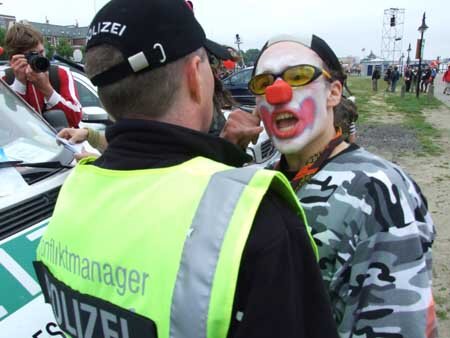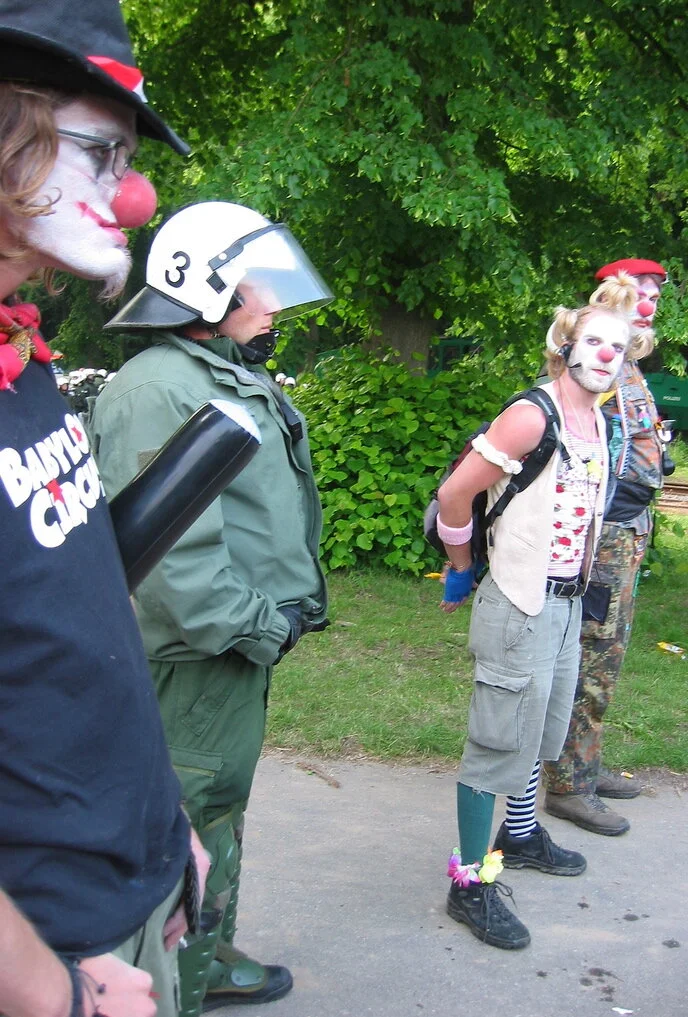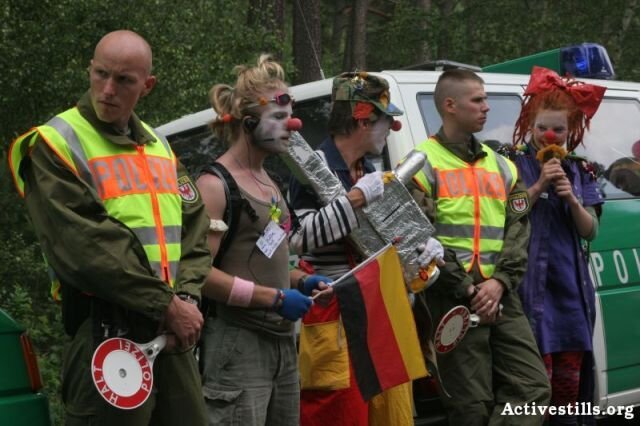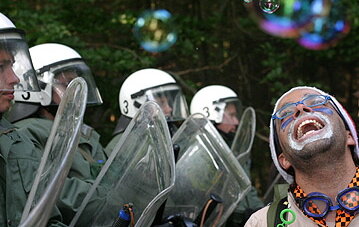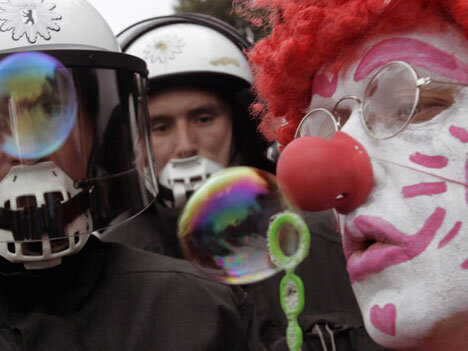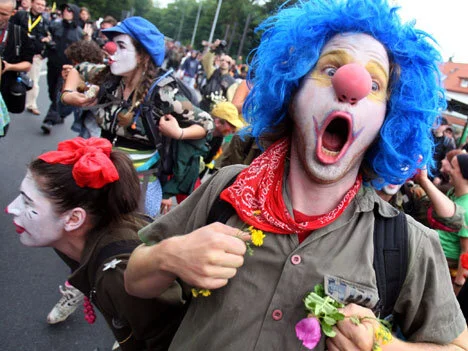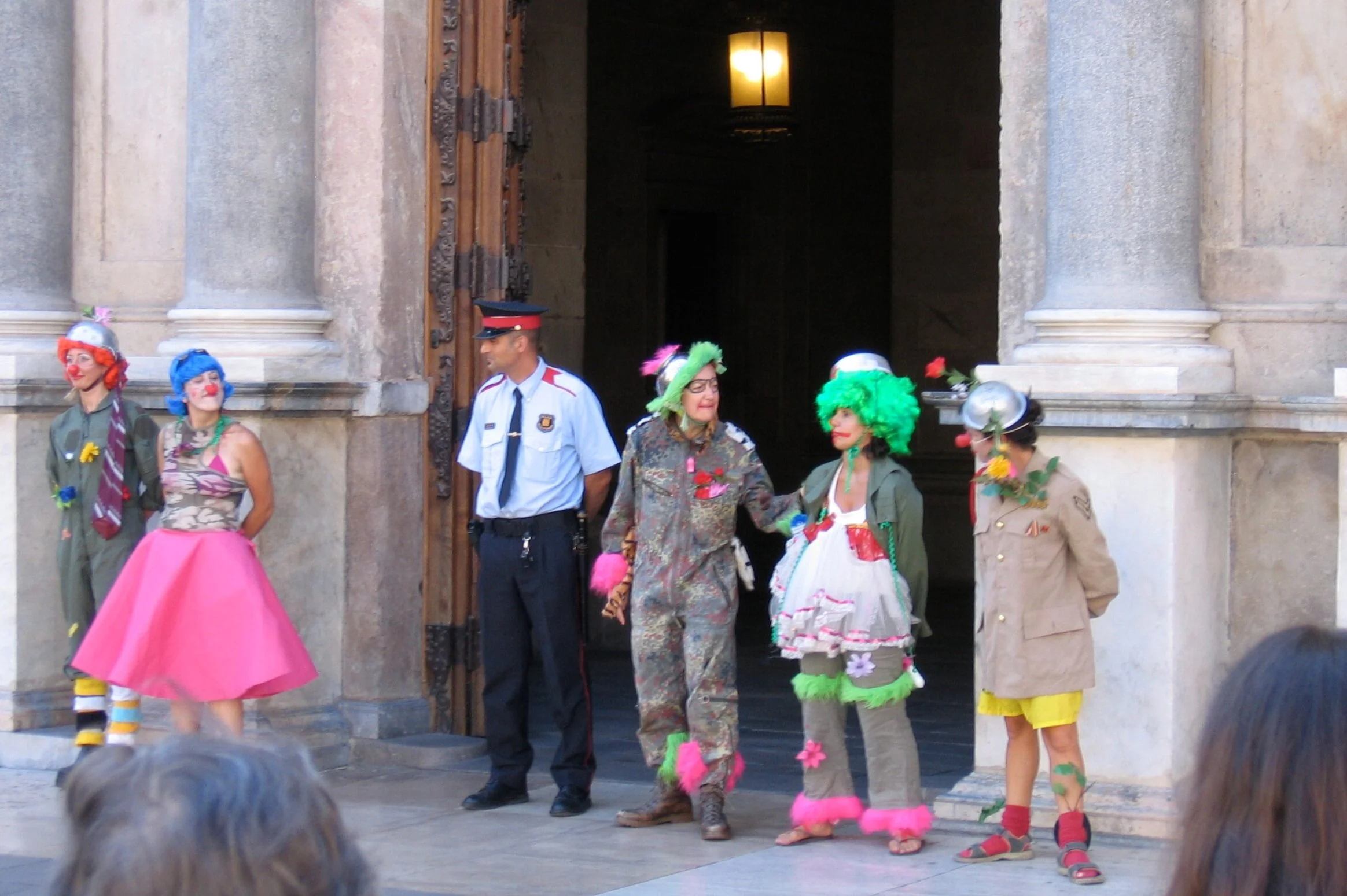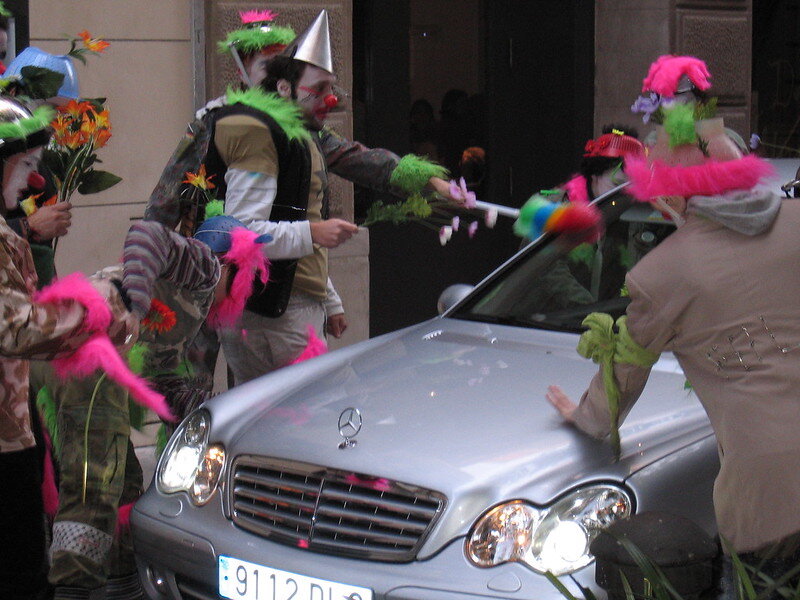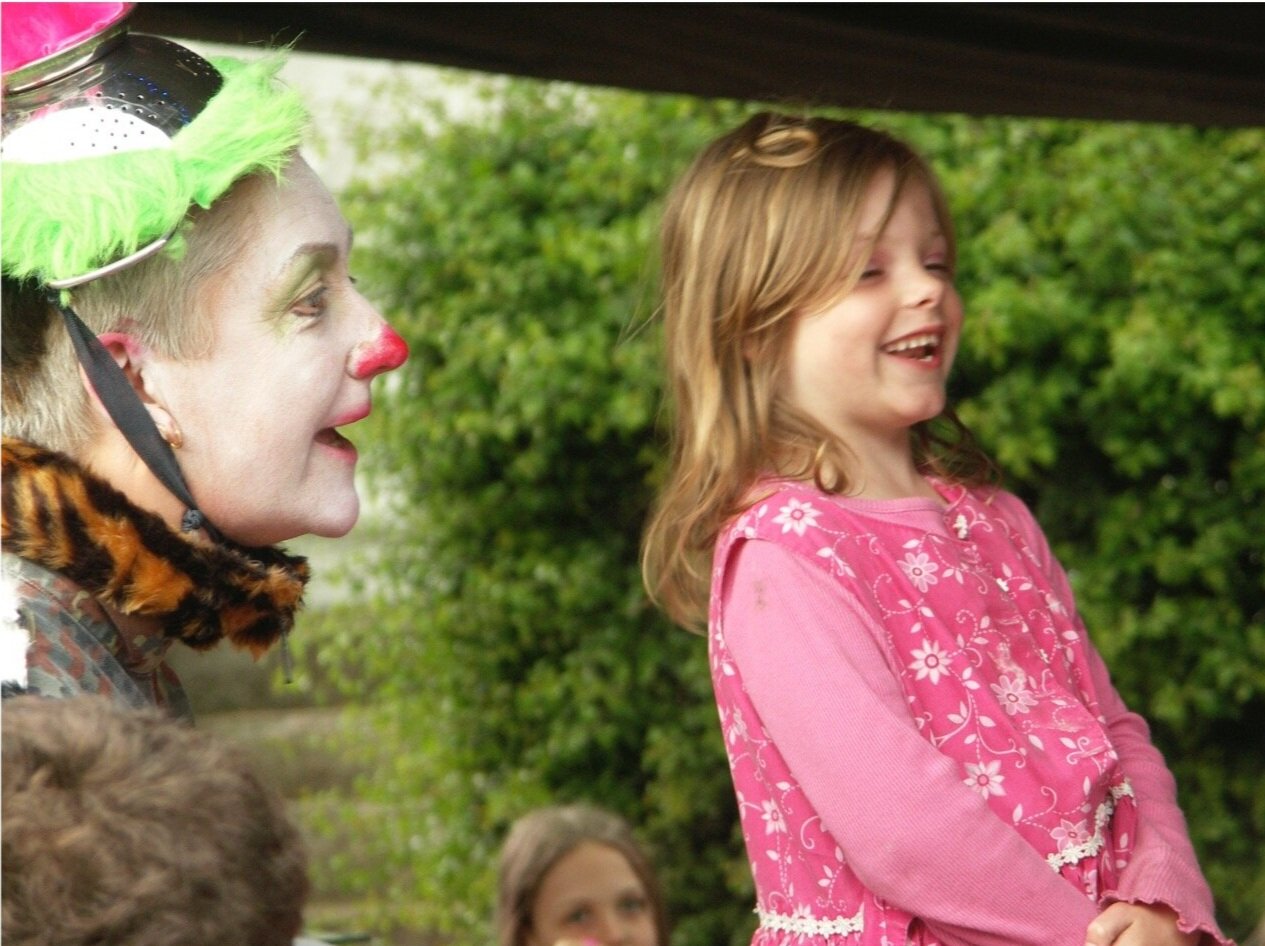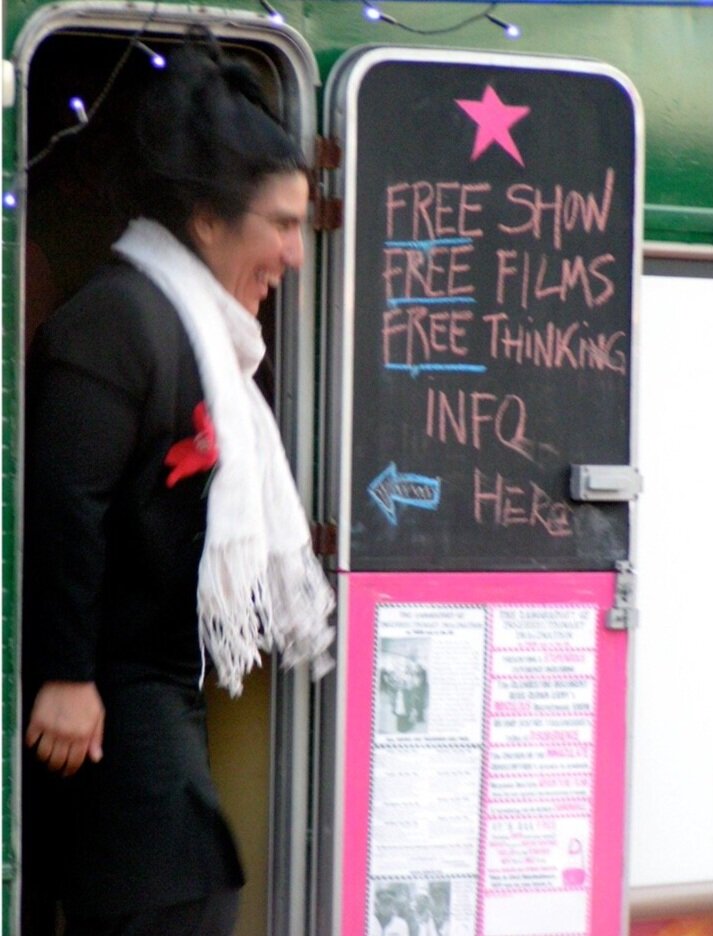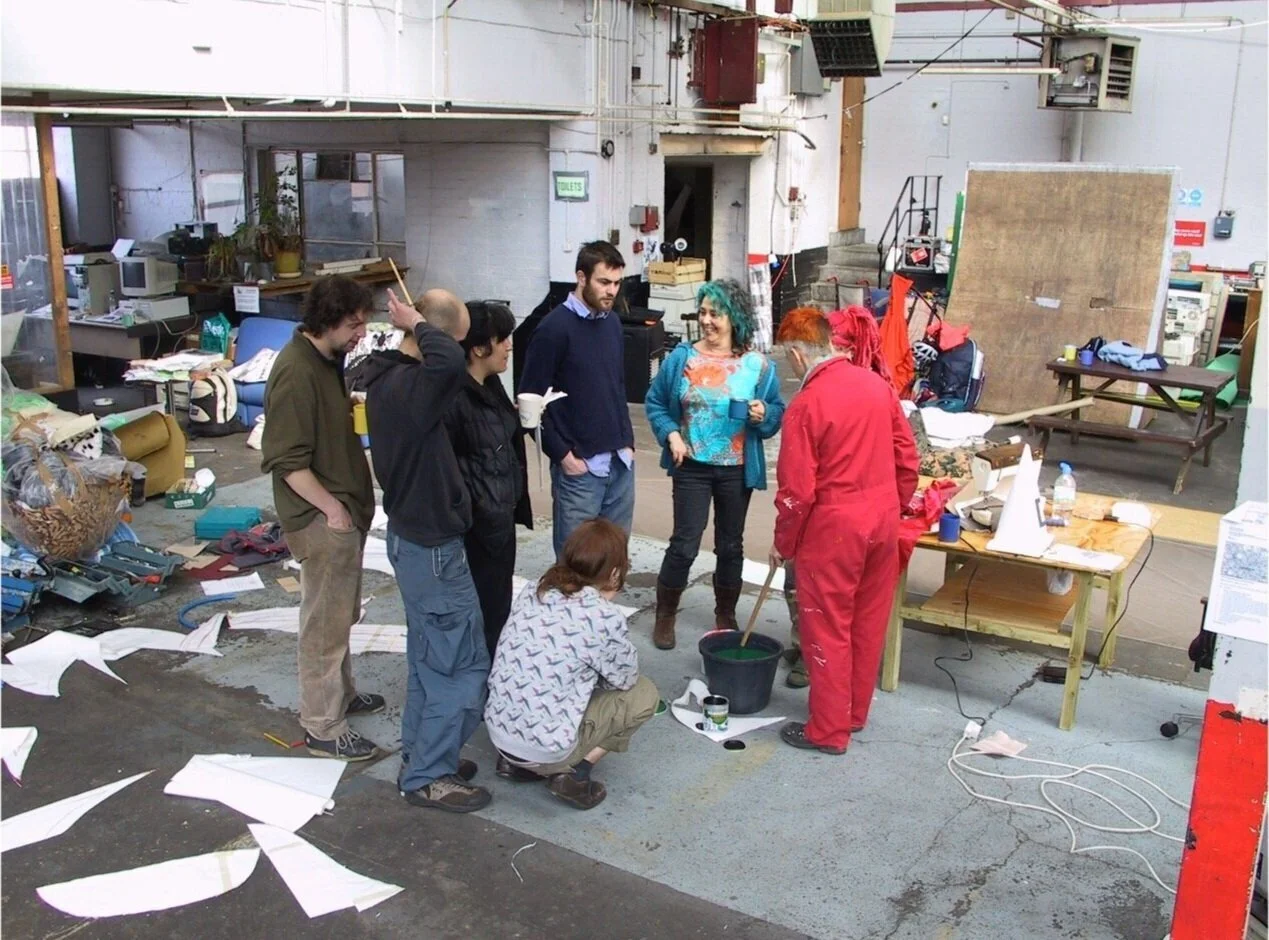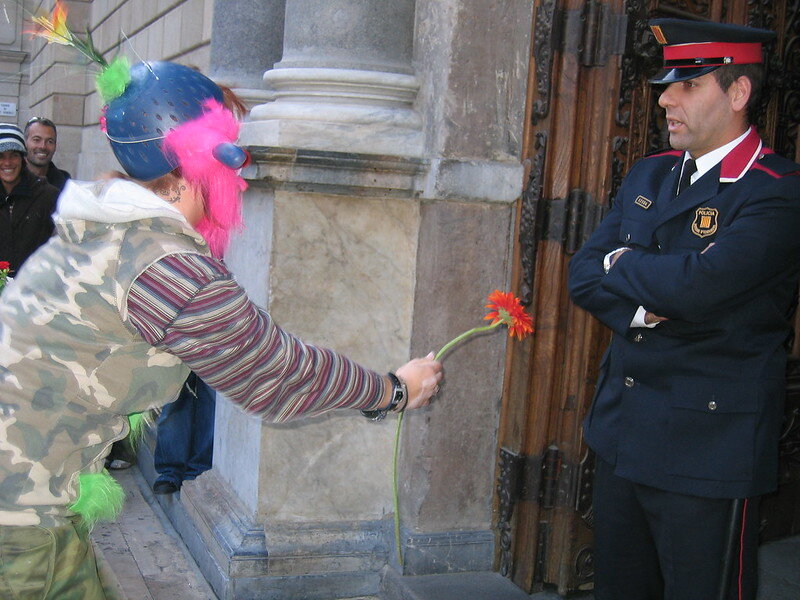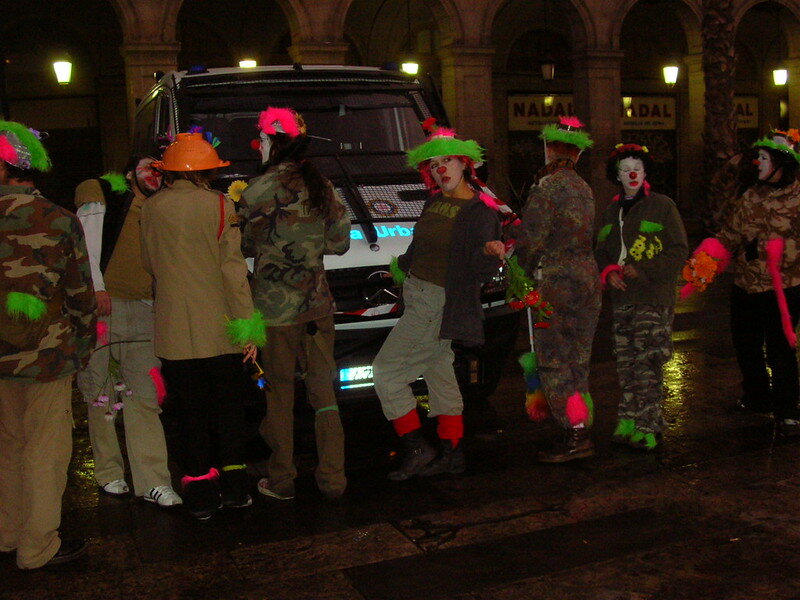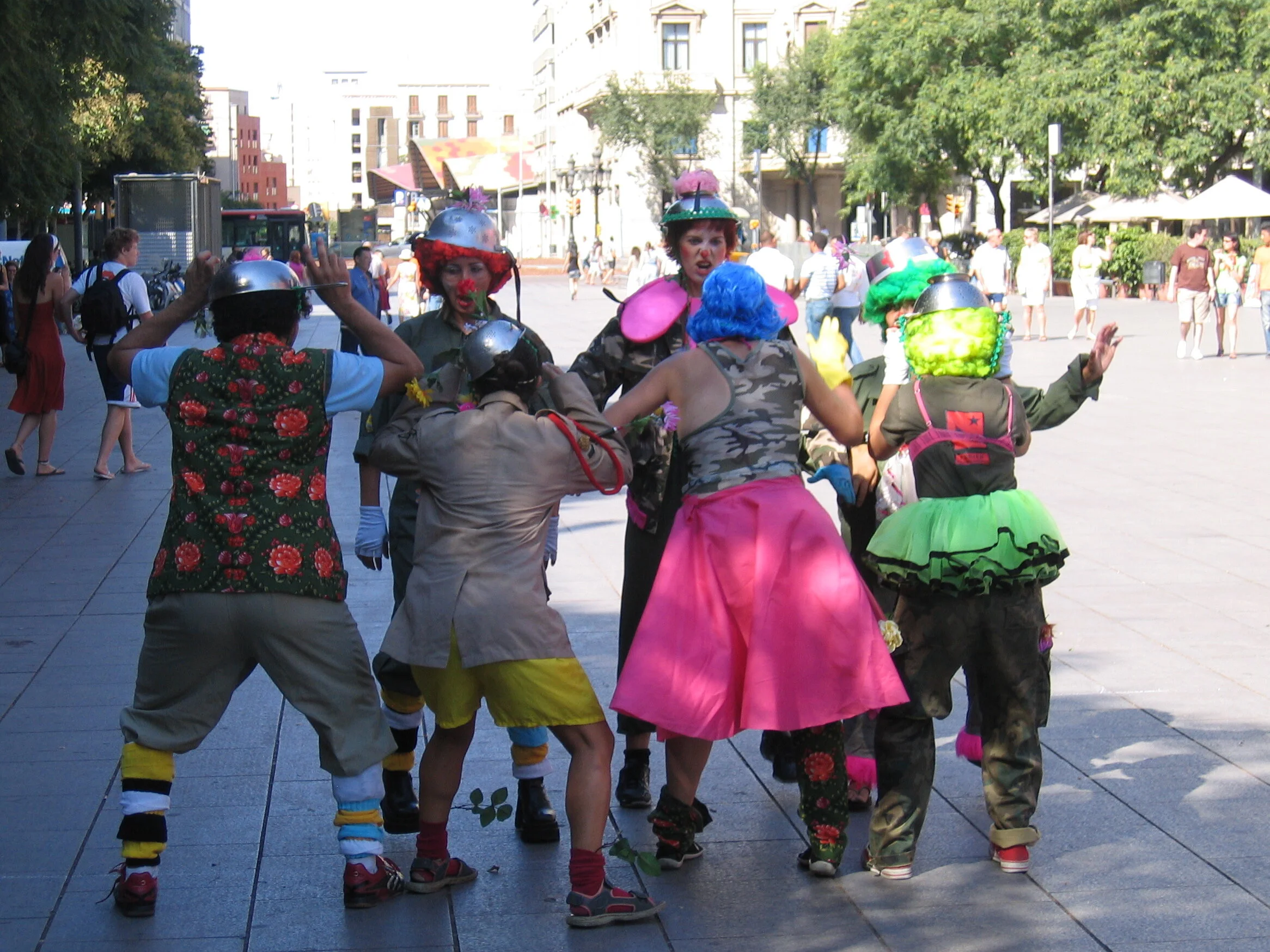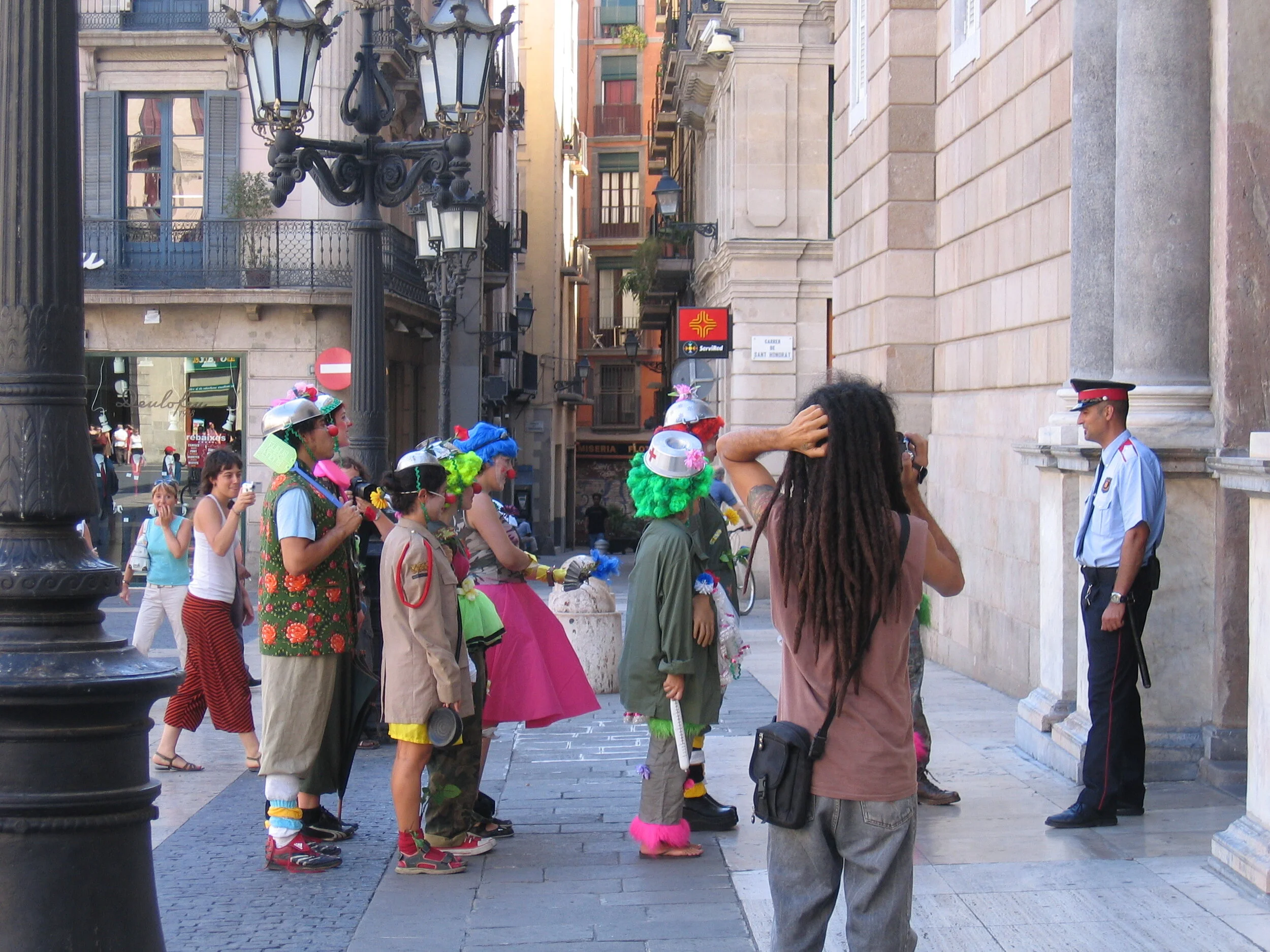rebel clowning
“CIRCA aims to make clowning dangerous again, to bring it back to the street, restore its disobedience and give it back the social function it once had: its ability to disrupt, critique and heal society.”
The Clandestine Insurgent Rebel Clown Army (CIRCA) started somewhere between London and Leeds between 2003 and 2004 when a gaggle of clowns shut down an army and navy recruiting office by trying to enlist in any of the services. It was a genius plan and was the start of many such interventions and actions on the part of activists who were tired of the same protester-authority binary dynamic that surfaced at every demonstration, who were tired of feeling burned out on anger, negativity and lost causes.
Developed for people to creatively engage in social change, rebel clowning is a form of radical political activism that brings together clowning and non-violent direct action. It aims to transform and sustain the emotional life of those engaged in social change - seeing the personal as political - as well as being an effective tool for direct action. At the core of this approach is the notion that innovative forms of creative street action are crucial for inspiring and building movements, and simultaneously involve a deeper process that “liberates people with weapons of love and laughter” (from CIRCA website, now defunct).[1]
Being in the state of rebel clown, creates opportunities for new visionings and imaginations, turning worlds upside down, similar to a Situationist détournement, and expressed in particular kind of stupidity and different-thinking and embodiment. What can happen in this place of rebel clown?
How is this different to an activist’s other states or places of being? What is possible to achieve?
Rebel clowning draws inspiration from a variety of practices and perspectives:
inspiration from the notion of carnival as a crucial form of resistance that merges the political and the aesthetic;
Carnival is about joyful disruption, unpredictability and spontaneity. It’s about inventiveness and “offers the chance…to enter a completely new order of things.”[1] The power of the carnival lies in its capacity to immediately transform reality, and offers individuals a space to be what they want to be without restrictions.[2]
inspiration from the bouffons, the outcasts of society, who are brought back into the fold once a year, to entertain the Great and the Good. They entertain with fantastic parodies of the people in authority, in power, with money and plenty of food. The parodies are so cunningly precise and so devastatingly funny, the laughter is so great that the audience dies of massive heart attacks…..oops…oh dear
inspiration from the clown who loves to make her audience laugh through surprise and charm…
inspiration from innovative personal-political approaches of feminism and queer activism and groups such as Reclaim the Streets
The rebel clown combines the naivety and willingness to please of the theatrical clown with the cunning and the street-wisdom of the buffoon and the activist. S/he transgresses boundaries of gender, intellect, sanity, activism and art: often neither a male nor female, neither artist nor activist, clever nor stupid, entertainment nor threat. Ignoring and consciously ignorant of these oppressive binary oppositions s/he claims the position of the “other” with pride as s/he plays with and against categorisation.
Rebel clowning is activism which values things seen as distinct from politics and the political: joy, pleasure, desire, diversity, horizontal power structures.
Rebel clowning, like carnival, is rooted in a blurring of the distinction between art and life. It creates forms that merge the two and propagates acts of cultural resistance that eschew representation in favour of radical social transformation and direct action. It “does not acknowledge any distinction between actors and spectators” (Bakhtin, 1984, p.168) and in this lies its liberatory and subversive nature. The carnival transforms the political space itself.[3] The rebel clown extends this blurring by also dissolving the theatrical ‘fourth wall’ between resister and authority through communication – of jokes, silly stunts, beautiful choreography and acts of love.
If, following Doreen Massey, we ask ourselves what are the responsibilities that are inherent to being placed, in this instance, as rebel clown. Is there a clown credo? A red nose manifesto?
The rebel clown goes out of herself, interrupts her everyday self and assumptions, preconceptions and instead of merely confronting his/her opposition, s/he acknowledges their physical presence and gives them respect as fellow human beings. Here are the beginnings of disruption of power relations. By blurring this boundary between protester and authority, the boundaries that give authority its power disappear; the rebel clown inhabits a place outside these power relations. In a way s/he becomes untouchable.
The rebel clown is the shaman and trickster, healer and fool, working at the margins of their cultures, expressing the opposite of their cultures’ expected norms. Since the beginning of time, they’ve had a fundamental critical social function that critiques and heals through disruption.
By parodying authority the rebel clown at once temporarily identifies with and assumes an identity of authority. It falls short of contempt and mockery by the fact that the clown looks stupid and out of character. S/he allows fun to be made of her and her actions, no longer always having to say no in a directly binary confrontation.
Unlike a corps de ballet where all the dancers strive to look the same, move in the same way, rebel clowns rupture the pattern. Each rebel clown in being herself yet doing the same games and exercises as everyone else is part of creating a collective choreography that is aesthetically pleasing yet more of a collaboration.
Kolonel Klepto writes: “Because the clown loves failure, even acts of repression can become spaces to mock and play with. Whenever the police put us into pens, we jump in willingly, turning a ‘police pen’ into a ‘play pen’, but then we jump out again (or get stuck trying to get out) and plead with them to throw us back in, because we so enjoyed it the first time. In order to mock the stop and search terrorist laws, which are regularly used to intimidate protestors, we fill our pockets to the brim (which often makes CIRCA members seem more portly than they actually are!) with stupid things – strings of sausages, underwear, rubber ducks, pink furry stuffed pigs, sex toys, miniature garden gnomes, old bones, small tanks, rubber ducks, plungers and more, which all have to be layed (sic) out on the street during searches. Dozens of police officers searching an army of clowns is a weird enough sight, but when members of the public see all the objects being taken out the absurdity of the situation overflows.” (Kolonel Klepto, Making war with love: The Clandestine Insurgent Rebel Clown Army, Alternatives)
The rebel clown also ruptures the pattern of making demands and threats that can be blocked. Instead, she asks permission and offers the opportunity for collaboration; having set themselves up in physical opposition to the clowns, the “authorities” have become a captive audience and are complicit in the clown's actions. They are caught in the uncomfortable position of being coerced to be part of the “show.” They are working with the clowns who are thus in a powerful position since the clown thrives on attention. This is most obvious when clowns are being searched by the police. Police and army strategy is built around predictability and knowing what the “enemy” will do next - but how can the police know what will happen when they decide to strip search a gaggle of rebel clowns? How can they know that half of them are likely to dissolve in hysterical giggles because they are ticklish while the other half have so many layers of clothing that it will take all day before they are down to their stripy underwear?
Rebel clowning turns the world of violent direct action on its head. It turns fear of authority and arrest into a game of tag or grandmothers’ footsteps. Instead of resisting, the clown collaborates; instead of obeying, the clown offers an alternative order or directive, instead of hating, the rebel clown mocks and slips away
The humour and laughter that characterize the clown are thus profoundly subversive. Rebel clowns become to the bastions of authority what the women of Greenham Common were to the American soldiers on the Greenham Common base: strange creatures that fall outside the established patterns of resistance. (Feminism and Nonviolence Study Group (1983) Piecing it together, UK: The Feminism and Nonviolence Study Group)
